- Home
- Alexandre Dumas
The Thousand and One Ghosts Page 4
The Thousand and One Ghosts Read online
Page 4
“Ah, you’re exaggerating!” exclaimed the doctor. “Her eyes looked at you, her lips spoke to you?”
“Listen, Doctor, since you’re a medic, you don’t believe in anything, that’s only natural; but I’m telling you that the head you can see there, there, d’you hear me?… I’m telling you that the same head that bit me – her head – said to me, ‘You wretch, I was innocent!’ And the proof that it said so is that… well, I’d originally wanted to run away after I’d killed her – killed Jeanne, I mean – and instead of running away I ran to the mayor’s to give myself up. Is that true, Monsieur Ledru – is that true? Answer me.”
“Yes, Jacquemin,” replied the mayor in tones of perfect affability. “Yes, that’s true.”
“Examine the head, Doctor,” said the police superintendent.
“Only when I’ve left, Monsieur Robert, only when I’ve left!” cried Jacquemin.
“Are you still afraid the head might start talking to you again, you fool?” retorted the doctor, taking the lamp and going over to the sack of plaster.
“Monsieur Ledru, in God’s name,” said Jacquemin, “tell them to let me go, I beg you, I implore you!”
“Gentlemen,” said the mayor, making a gesture which brought the doctor to a halt, “you won’t get anything more out of this wretched man; allow me to have him taken off to jail. When the law ordained that the prisoner be forced to confront the evidence, it presupposed that the accused would have the strength to stand up to the ordeal.”
“But what about the deposition?”
“It’s almost complete.”
“The accused needs to sign it.”
“He’ll sign it in jail.”
“Yes! Yes!” exclaimed Jacquemin. “In jail I’ll sign anything you like.”
“That’s fine, then!” said the police superintendent.
“Gendarmes! Take this man away!” said Monsieur Ledru.
“Ah, thank you, Monsieur Ledru, thank you!” said Jacquemin with an expression of profound gratitude.
And, taking the two gendarmes by the arm, he pulled them up the stairs with a superhuman strength.
Once this man had gone, the drama vanished with him. In the cellar all that was left were two things hideous to behold: a corpse without a head and a head without a body.
I leant in my turn towards Monsieur Ledru.
“Monsieur,” said I, “will you allow me to withdraw? I remain at your disposal for the signature of the deposition.”
“Yes, Monsieur, but on one condition.”
“Namely?”
“That you come to sign the deposition in my home.”
“With the greatest pleasure, Monsieur – but when?”
“In about an hour. I will show you round my house; it belonged to Scarron* – you’ll find it interesting.”
“In one hour, Monsieur, I will be at your house.”
I bowed and climbed up the stairs in my turn; when I reached the topmost steps, I glanced back down into the cellar one last time.
Dr Robert, the candle in his hand, was clearing her hair away from her face, which was that of a still beautiful woman, as far as one could tell, since her eyes were closed and her lips pinched and livid.
“That idiot Jacquemin!” he said. “Maintaining that a severed head can speak! Unless he contrived that little idea to make us think he’s gone off his head; it wouldn’t be such a bad idea: in that case, there’d be extenuating circumstances.”
4
Scarron’s House
One hour later, I was at Monsieur Ledru’s. By chance, I met him in the courtyard.
“Ah!” he said when he saw me. “There you are! All the better, I’m quite glad of the opportunity to have a bit of a chat with you before I introduce you to the other guests – you will have lunch with us, won’t you?”
“But Monsieur, you must excuse me.”
“I won’t accept any excuses; you’ve turned up on a Thursday, so much the worse for you: Thursday is my day, everyone who comes to my house on a Thursday belongs wholly and fully to me. After lunch, you are free to choose whether you stay or go. If it hadn’t been for the recent events, you’d have found me at table, given that I invariably have lunch at two o’clock. Today, by way of exception, we’ll have lunch at half-past three or four o’clock. Pyrrhus, whom you see over there”– and Monsieur Ledru indicated a huge and magnificent mastiff – “Pyrrhus took advantage of Mère Antoine’s fright to grab hold of the leg of lamb; this was his right, so they were obliged to go and get another one from the butcher’s. I said this would give me the time not only to introduce you to the other guests, but also to give you a little information about them.”
“Information?”
“Yes, they’re characters who, like those in The Barber of Seville and The Marriage of Figaro, need to be preceded by a certain amount of explanation about their dress and their personality… but let’s start with the house.”
“Yes: it was here that the future wife of Louis XIV, while waiting to amuse the King, that unamusable man, looked after that poor legless cripple, her first husband. You’ll see her room.”
“Madame de Maintenon’s?”
“No, Madame Scarron’s; let’s not get mixed up: Madame de Maintenon’s room is at Versailles or Saint-Cyr.* Come along.”
We climbed up a grand staircase and found ourselves in a corridor looking out over the courtyard.
“Well now,” said Monsieur Ledru, “here’s something to touch your heartstrings, Sir Poet! It’s the purest bombast that was ever spoken in 1650.”
“Aha! The Map of Love.”*
“Return ticket, with the route marked by Scarron and annotated by the hand of his wife – no more, no less.”
And indeed, two maps occupied the space between the two windows.
They were drawn by pen, on a big sheet of paper stuck on cardboard.
“You see that great blue snake,” continued M. Ledru. “That’s the River of Love; those little dovecotes are the hamlets known as Solicitous Fussing, Love Letters and Mystery. There’s the Inn of Desire, the Valley of Favours, the Bridge of Sighs and the Forest of Jealousy – which is peopled by a horde of monsters, like Armida’s.* Finally, in the middle of the lake where the river arises, you can see the Palace of Perfect Contentment: that’s journey’s end, the goal of the voyage.”
“What the!… Is that a volcano I can see?”
“Yes, it sometimes turns the whole country upside down. It’s the Volcano of Passions.”
“That’s not on Mademoiselle de Scudéry’s map, is it?”
“No. It was made up by Madame Paul Scarron. Anyway, so much for that map.”
“And the other one?”
“The other one is the Return Journey. As you can see, the river has overflowed; it is swollen by the tears of those who follow its course. Here are the Hamlets of Boredom, the Inn of Regrets, the Island of Repentance. It’s as ingenious as anything.”
“Would you be so kind as to let me copy it?”
“Oh, copy away! Now, do you want to see Madame Scarron’s bedroom?”
“I should think so!”
“Here it is.”
Monsieur Ledru opened a door; he ushered me in ahead of him.
“These days it’s my room, but, apart from the clutter of books everywhere, you see it as it was at the time of its illustrious proprietor: the same alcove, the same bed, the same furniture; that dressing room was hers.”
“And Scarron’s bedroom?”
“Oh, Scarron’s bedroom was at the far end of the corridor, but you’ll have to miss out on that one; nobody goes in there: it’s the secret room, Bluebeard’s chamber.”
“Good Lord!”
“Well, that’s how it is. I have my mysteries too, you know, even though I’m the mayor. But come with me – I’ve got something else to show you.”
Monsieur Ledru walked ahead of me; we went down the stairs and into the salon.
Like all the rest of the house, this salon had an unusual appearance.
The original colour of its wallpaper would have been difficult to determine: all along the wall were two imposing rows of armchairs, bordered by a row of chairs, all upholstered in old tapestry; every so often, gaming tables and pedestal tables; then, in the midst of all that, like Leviathan in the midst of the fishes of the ocean, a gigantic writing table, stretching from the wall – against which one of its ends was propped – to a third of the way out into the room; a table entirely covered with books, booklets and newspapers, and in the middle of them, like a king on his throne, Le Constitutionnel, Monsieur Ledru’s favourite reading matter.
The salon was empty: the guests were strolling out in the garden, which could be seen in all its extent through the windows.
Monsieur Ledru went straight to his table and opened an immense drawer, in which was a host of small packets similar to seed packets. The objects kept in this drawer were themselves kept wrapped up in labelled envelopes.
“Look,” he said, “here’s something else for you, history man that you are – something more curious than the Map of Love. It’s a collection of relics, not of saints, but of kings.”
And each envelope did indeed contain a bone, a lock of hair or strands of a beard. There was a kneecap of Charles IX, the thumb of François I, a fragment of the skull of Louis XIV, a rib of Henri II, a vertebra of Louis XV, a curl from the beard of Henri IV and a lock of the hair of Louis XIII. Each king had provided a specimen, and from all of these bones it would have been possible to reconstruct pretty much an entire skeleton that would have been a perfect representation of the skeletal remains of the French monarchy, which has long been lacking in backbone.
There was, as well as this, one of Abelard’s teeth and one of Héloïse’s – two white incisors, which, at the time when they were still covered by their tremulous lips, had perhaps come together in a kiss. Where did this ossuary come from?
Monsieur Ledru had presided over the exhumation of the kings at Saint-Denis, and he had taken from each of the tombs whatever had caught his fancy.
Monsieur Ledru gave me a few minutes to satisfy my curiosity; then, seeing that I had more or less reviewed all his labels, he said, “Come on, we’ve spent enough time on the dead, let’s go over to the living.”
And he led over to one of the windows, through which, as I have said, one had an extensive view out over the garden.
“You have a lovely garden there,” I said.
“It’s a priest’s garden, with its quincunx of lime trees, its collection of dahlias and rose bushes, its bowers of vines and its espaliers of peach and apricot trees – you’ll be seeing all those, but, for now, let’s think not about the garden but about those who are taking a stroll through it.”
“Ah! First of all, tell me something about that Monsieur Alliette, also known as Etteilla, anagrammatically, who asked if they wanted to know his real age or merely the age he looked; it seems to me that he looks every bit of seventy-five years old, as you said he was.”
“Quite so,” replied Monsieur Ledru. “I was going to start with him. Have you read Hoffmann?”
“Yes… Why?”
“Well, he’s a character from Hoffmann. All his life long, he has tried to apply cards and numbers to foretelling the future; everything in his possession ends up being staked in the lottery – first time round he got a tern,* and he’s never won anything since. He knew Cagliostro and the Count of Saint-Germain: he claims kinship with them, and says that like them he possesses the secret of the elixir of long life. His real age, if you ask him, is two hundred and seventy-five: first he lived for a hundred years, without infirmities, from the reign of Henry II to that of Louis XIV; then, thanks to his secret, although he died in the eyes of ordinary folk, he lived out three other revolutions of fifty years each. Just now, he is starting the fourth cycle, and in consequence is only twenty-five. The first two hundred and fifty years now only count as a memory. He will live on like this – he says so expressly – until the Last Judgement. In the fifteenth century, they’d have burnt Alliette, and they’d have been wrong to do so; today they content themselves with feeling sorry for him, and they are just as wrong. Alliette is the happiest man on earth: he talks of nothing but tarot, cards, spells, the Egyptian sciences of Thoth and the mysteries of Isis. On all these subjects he publishes little books that nobody ever reads, and yet there’s a bookseller, as crazy as he is, who publishes them pseudonymously, or rather under the anagrammatical name Etteilla; his hat is always full of booklets. There, just look at him: he’s holding his hat under his arm, he’s so afraid that somebody might take his precious books from him. Look at the man, look at his face, look at his clothes, and see how harmonious nature always is, and how exactly the hat fits the head, the man the clothes and the doublet the mould, as you Romantics say.”
And indeed, this was perfectly true. I examined Alliette: he was wearing a grey, dusty suit, worn out and stained; his hat, its rim as shiny as patent leather, panned out excessively at the top; he was wearing trousers of coarse black cloth, black or rather russet-coloured stockings and shoes rounded out like those of the kings under whom he claimed he had been born.
Physically, he was a plump little man, stocky, with a sphinx-like face, a rasping voice, a wide, toothless mouth whose absence of teeth was indicated by the gash of a grin and a scalp topped by thin wisps of long yellow hair flapping round his head like a halo.
“He’s talking to Father Moulle,” I said to Monsieur Ledru, “the one who came with us on our expedition this morning – an expedition we’ll have more to say about, won’t we?”
“And what else might we have to say about it?” Monsieur Ledru asked, glancing at me curiously.
“Well, forgive me, but you did seem to believe it was possible that the head spoke.”
“You’re a real physiognomist! All right, I do believe as much! Yes, we’ll talk about all that at greater length, and, if you’re curious to hear stories of that kind, you’ll find someone here to talk to. But let’s move on to Father Moulle.”
“He must be,” I interrupted, “a delightful man to know; the mildness of his voice, when he was answering the police superintendent’s questioning, quite struck me.”
“Well, there again you’ve hit the nail on the head! Moulle has been a friend of mine for forty years, and he’s sixty. As you can see, he is as clean and trim as Alliette is down at heel, fat and dirty; he’s a member of the highest society, well in with the Faubourg Saint-Germain. He’s the one who officiates at the weddings of the sons and daughters of peers of the realm: these weddings are for him an opportunity to deliver little speeches that the parties to the contract then have printed and preserved as precious family heirlooms. He was almost appointed Bishop of Clermont. Do you know why he wasn’t? Because in days gone by he was a friend of Cazotte’s* – and because, well, like Cazotte, he believes in the existence of higher and lower spirits, good and evil genies; like Alliette, he collects books. At his place you’ll find everything that’s ever been written on visions and apparitions, on spectres, ghosts and spooks. Although he doesn’t often talk, except when he’s with friends, about all those not altogether orthodox things, he is, all in all, a man of (discreet) conviction, who attributes everything extraordinary that happens in this world to the power of hell or to the intervention of heavenly intelligences. As you see, he is listening in silence to what Alliette is telling him and seems to be gazing at some object that the other man cannot see, and to which he replies from time to time with a movement of his lips or a nod of his head. Sometimes, when he is among us, he completely falls into a sombre reverie, shudders, trembles, turns his head this way and that and strides up and down the room. When this happens, we have to leave him be; it might be dangerous to wake him up. I say ‘wake him up’, since at such times I think he is in a state of somnambulism. In any case, he wakes up all by himself and, as you will see, when that happens his awakening is a delightful thing to behold.”
“Oh! But tell me,” I said to Monsieur Ledru, “it seems to me that he has just called up one of those spirits you were mentioning just now?”
And I pointed out to my host a real walking spectre who had just come to join the two who were conversing, and who was carefully placing his feet between the flowers, on which he seemed able to walk without bending them.
“That,” he said, “is another of my friends, the Chevalier Lenoir…”*
“The one who created the Petits-Augustins museum?”
“The same. He is dying of grief over the dispersal of his museum, for which, in ’92 and ’94, he was nearly killed ten times over. The Restoration, with its usual intelligence, closed it down, and ordered all the monuments to be returned to the buildings where they belonged, and to the families that could claim rights over them. Unfortunately, most of the monuments had been destroyed, and most of the families had died out, so that the most curious fragments of our ancient sculpture, and thus of our whole history, were dispersed and lost. This is how all of our old France is disappearing; only those fragments were left, and of those fragments there will soon be nothing that remains – and who are the men who are destroying it all? The very same who would have the greatest interest in conserving it.”
And Monsieur Ledru, however much of a “liberal” he was – as they said in those days – heaved a sigh.
“Is that all of your guests?” I asked him.
“We might have Dr Robert. I won’t say anything about him – I presume you have already judged him. He’s a man who, all his life long, has experimented on the human machine, as he would have done on some tailor’s dummy, without ever suspecting that this machine had a soul to understand pain, and nerves to feel it with. He’s a bon vivant who has caused a great number of deaths. He doesn’t believe in ghosts – luckily for him! He’s a mediocre fellow who thinks he’s being witty when he’s just noisy, and takes himself for a philosopher when he’s just an atheist; he’s one of those men you have in your house not because you’ve invited them, but because they simply turn up. As for going to call on them at their place – the very idea!”

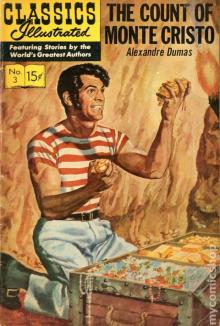 The Count of Monte Cristo, Illustrated
The Count of Monte Cristo, Illustrated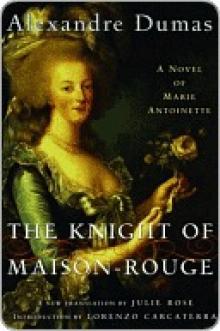 Knight of Maison-Rouge
Knight of Maison-Rouge![The Three Musketeers - Alexandre Dumas - [Full Version] - (ANNOTATED) Read online](http://i1.bookreadfree.com/14/the_three_musketeers_-_alexandre_dumas_-_[full_version]_-_annotated_preview.jpg) The Three Musketeers - Alexandre Dumas - [Full Version] - (ANNOTATED)
The Three Musketeers - Alexandre Dumas - [Full Version] - (ANNOTATED)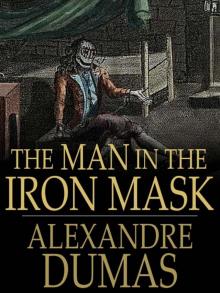 The Man in the Iron Mask
The Man in the Iron Mask The Count of Monte Cristo (Penguin Classics eBook)
The Count of Monte Cristo (Penguin Classics eBook)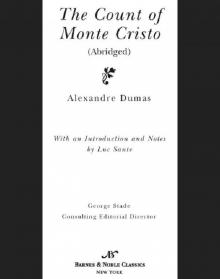 Count of Monte Cristo (abridged) (Barnes & Noble Classics Series)
Count of Monte Cristo (abridged) (Barnes & Noble Classics Series) The Women's War
The Women's War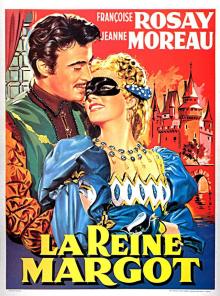 La reine Margot. English
La reine Margot. English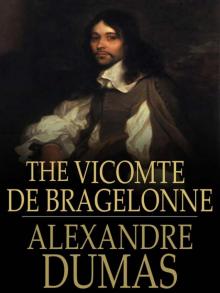 The Vicomte de Bragelonne
The Vicomte de Bragelonne__english_preview.jpg) La dame aux camélias (Novel). English
La dame aux camélias (Novel). English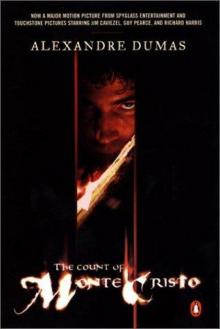 The Count of Monte Cristo
The Count of Monte Cristo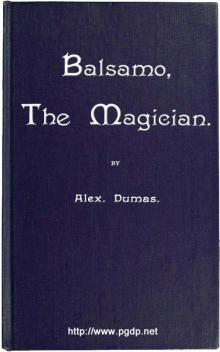 Balsamo, the Magician; or, The Memoirs of a Physician
Balsamo, the Magician; or, The Memoirs of a Physician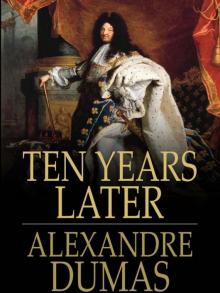 Ten Years Later
Ten Years Later The Romance of Violette
The Romance of Violette The Mesmerist's Victim
The Mesmerist's Victim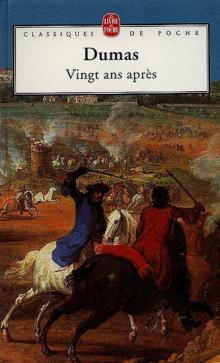 Vingt ans après. English
Vingt ans après. English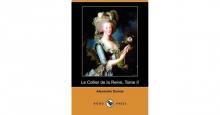 Le collier de la reine. English
Le collier de la reine. English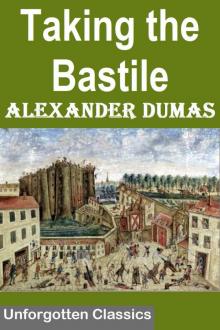 Taking the Bastile; Or, Pitou the Peasant
Taking the Bastile; Or, Pitou the Peasant The Hero of the People: A Historical Romance of Love, Liberty and Loyalty
The Hero of the People: A Historical Romance of Love, Liberty and Loyalty Louise de la Valliere
Louise de la Valliere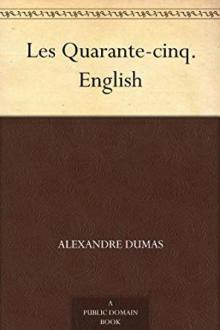 Les Quarante-cinq. English
Les Quarante-cinq. English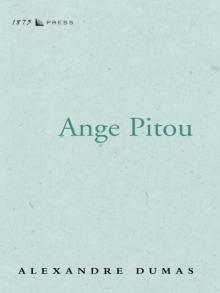 Ange Pitou (Volume 1)
Ange Pitou (Volume 1) The Royal Life Guard; or, the flight of the royal family.
The Royal Life Guard; or, the flight of the royal family.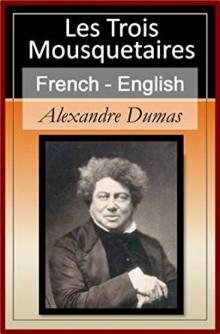 Les trois mousquetaires. English
Les trois mousquetaires. English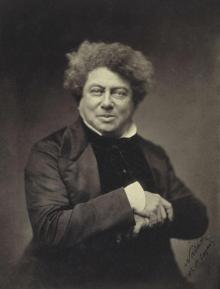 Une fille du régent. English
Une fille du régent. English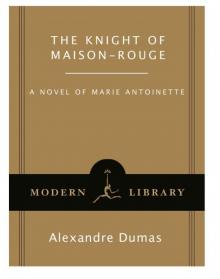 The Knight of Maison-Rouge
The Knight of Maison-Rouge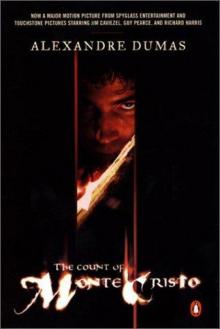 The Count of Monte Cristo (Unabridged Penguin)
The Count of Monte Cristo (Unabridged Penguin) Ange Pitou
Ange Pitou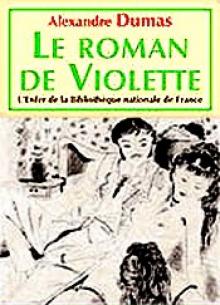 The Romance of Violette (vintage erotica)
The Romance of Violette (vintage erotica)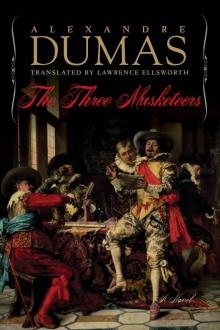 The Three Musketeers
The Three Musketeers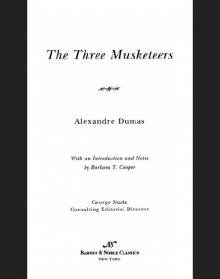 Three Musketeers (Barnes & Noble Classics Series)
Three Musketeers (Barnes & Noble Classics Series)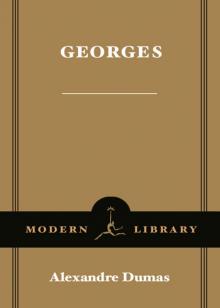 Georges
Georges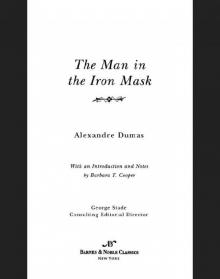 Man in the Iron Mask (Barnes & Noble Classics Series)
Man in the Iron Mask (Barnes & Noble Classics Series)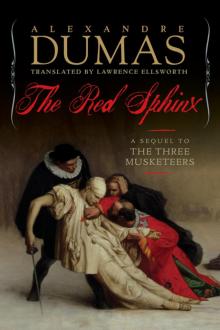 The Red Sphinx
The Red Sphinx